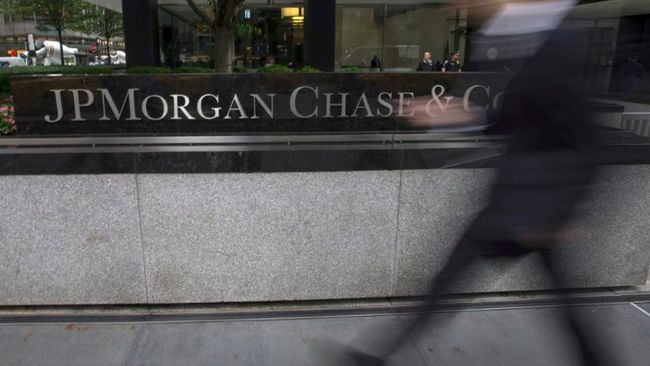Jakarta, CNBC Indonesia – Amid the collapse of the Joint Stock Price Index (IHSG) by almost 10% this September, foreign investors continue to exit (net sell) from the homeland stock exchange.
Net sell foreigner listed year to date (ytd) reached IDR 60 trillion until Wednesday (30/9/2020) in the regular market.
IDX data noted, JCI on Wednesday’s second trading session at 14:18, corrected 0.20% to 4,870 positions. In the last month, the JCI was minus 8.32% and the year to date the JCI had collapsed by 22.72%.
Net sell foreigners today reached Rp. 470 billion, in the last month foreigners came out Rp. 13.82 trillion, and the current year (ytd) since January reached Rp. 60.01 trillion.
Large banking shares were sold in session I today. The share price of PT Bank Mandiri Tbk (BMRI) was corrected the most, namely 3.05% to IDR 4,920 / share. BRMI’s net sell was recorded at Rp. 95.90 billion.
Next, the decline in shares was followed by shares of PT Bank Negara Indonesia Tbk (BBNI) which fell 2.44% to Rp.4,400 / share and shares of PT Bank Tabungan Negara Tbk (BBTN) which fell 1.67% to Rp.1,175 / share.
Net sell BBNI’s shares reached Rp 15.89 billion, while BBTN’s shares amounted to Rp 2.76 billion.
Not to forget the shares of PT Bank Rakyat Indonesia Tbk (BBRI) also corrected 0.99% to Rp. 3,010 / share followed by shares of PT Bank Central Asia Tbk (BBCA) which fell 0.91% to Rp 27,275 / share.
Net sell BBRI’s shares reached Rp 52.16 billion, while BBCA shares which have the largest market capitalization on the IDX (Rp 672 trillion) experienced a net sell of Rp 23.71 billion.
According to the Executive Director, Head of Indonesia Research and Strategy of JPMorgan Sekuritas Indonesia Hendri Wibowo, market players are still watching the increasing sentiment of Covid-19 in Indonesia and the implementation of PSBB (large-scale social restrictions), especially in the capital city of Jakarta.
“Especially announcement PSBB has only been on since September 14, we can see the market [IHSG] down nearly 10% throughout September. Very underperformed [IHSG] compared to the region, “he said in the Power Lunch program, on CNBC TV Indonesia led by Muhammad Gibran, Wednesday (30/9/2020).
JPMorgan is also trying to compare the economic impact of the new PSBB with the PSBB implemented in DKI Jakarta in April and May.
“In April and May, second quarter Our total GDP growth decreased by 5%, then the issuer’s net profit or market earnings decreased by 30%. Whether the 3rd and 4th quarter will be the same as the 2nd quarter, because PSBB, again, this will be a puzzle and will be watched by the market. “
However, the good sentiment is that his party assesses that the PSBB implemented only occurs in Jakarta, not all of Indonesia. Not only that, the new PSBB is also not as strict as in April and May although it is tougher than new normal which took effect last June-August.
“The economic impact should not be as severe as in second quarter, but it is economy recovery, speedit will be slower. “
According to him, the outflow of foreign funds is one of the reasons for seeing the current position of global investors who prefer to invest in developed countries compared to emerging markets on the grounds of a better health management system.
“We know that Covid-19 is highly correlated healthcare system, global investors where they are today tends to develop compared to emerging markets such as Indonesia, India, the Philippines, where healthcare systems are not as good as developed countries. “
As for Asia, the position of foreign investors tends to choose investment in North East Asia (Northeast Asia) compared to South East Asia (Southeast Asia).
“Mostly more now overweight to North East Asia compared to South East Asia, North East such as China, Hong Kong, Korea, Taiwan. Globally, investors tend to put more funds into developing and see a better health system, the downward trend in Covid-19, by looking at the Covid-19 curva, specifically in southeast Asia, S.Ingapura and Thailand are better. “
(bag bag)
– .


:quality(80)/cdn-kiosk-api.telegraaf.nl/35354b58-02fd-11eb-a219-02c309bc01c1.jpg)